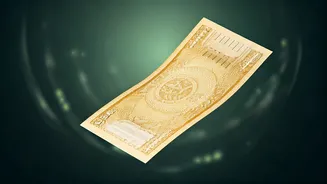Trump's Visa Support
During an interview on Fox News, Donald Trump addressed the H-1B visa program. When asked if his administration would prioritize the program over fears
of suppressed wages for American workers, Trump responded with a surprising endorsement. The interviewer suggested the US had plenty of talented workers, but Trump directly countered, stating, "No, you don't." He went on to argue the need to bring in talent from abroad to fill specific job requirements, highlighting the expertise required in certain industries. Trump used the example of complex manufacturing processes, such as battery production, to demonstrate the necessity of foreign workers with specialized skills. This defense occurred after the administration's move to significantly increase the H-1B visa fee, an action that had caused worry among the expat workforce, including Indians.
Contextual Background
Trump's statement took place against a backdrop of stricter immigration policies, including increased fees for the H-1B visa. The administration had earlier raised the annual fee to USD 100,000, creating shockwaves among the foreign workforce, particularly the Indian community. This move came in contrast to Trump's earlier remarks, such as his visit to South Korea, where he expressed opposition to an ICE raid at a Hyundai facility. The raid resulted in the detention of over 300 South Korean workers. The White House later clarified that the new fee applied only to new applicants, not current holders. Trump's comments also coincided with other immigration-related actions, such as efforts to restrict the types of people permitted into the country. These actions created an environment of uncertainty for many skilled workers and companies that depend on their expertise.
Labor Shortage Claims
In his defense of the H-1B program, Trump emphasized the need for foreign talent to address the lack of qualified domestic workers. He claimed that the US did not possess enough individuals with specific skills to fill available job openings. As an example, Trump pointed out how the production of batteries is a complicated process and not easy for everyone. Furthermore, he noted that at a particular facility, hundreds of people were working in the initial stages of battery production. Trump underscored the importance of bringing in workers from other countries to teach people how to make batteries. He argued that the expertise of these workers was indispensable. Trump's statements suggest a recognition of the value that skilled foreign workers bring, particularly in specialized fields where domestic talent may be limited.
Contradictory Actions?
Trump's endorsement of the H-1B program appears contradictory when considering the simultaneous increase in visa fees. This fee hike of USD 100,000 caused widespread alarm, especially among Indian professionals. This fee increase was announced in a proclamation issued on September 19, stating that H-1B employees, including those with current visas, could be denied entry unless the employer paid the full amount. Trump's remarks about the need for foreign talent are difficult to reconcile with policies that make it more expensive and challenging for companies to hire those workers. The mixed signals raise questions about the long-term immigration strategy and the potential impact on industries that heavily rely on skilled foreign labor. The situation suggests a complex interplay between political goals, economic realities, and workforce demands.
















